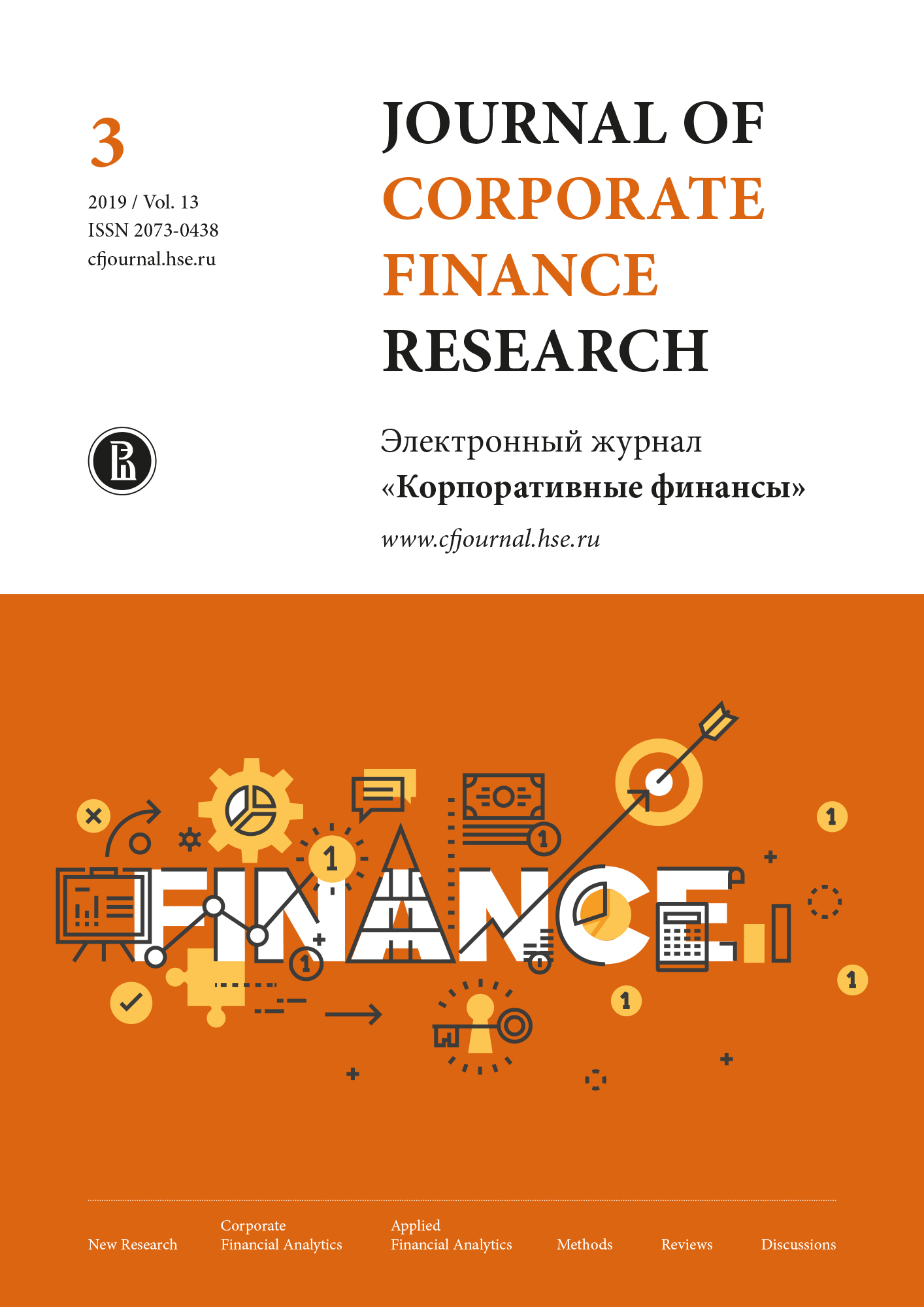Premium Evaluation in Mergers and Acquisitions of Electricity Companies
Abstract
The purpose of this research is to build a model for estimating the relative premium in mergers and acquisitions involving electric power companies. This evaluation is based on four groups of factors: the company’s operating and financial results, the country in which the company operates, the industry the company belongs to, and the debt market conjuncture.
This paper is based on a comparative business valuation method. The empirical base of this research includes data on 6504 deals that have occurred throughout the world from 1997 to 2018. This data is sourced from the Zephyr database (https://www.bvdinfo.com), which includes data on both public and non-public companies for which the amount paid in a deal is known, as well as the value of total assets.
The results of this research demonstrates that this categorisation of industries, (achieved via a mathematical algorithm) corresponds almost identically to the existing industry structure of the electric power industry. The coefficient of determination of the final econometric model is more than 20 percent, which indicates a high-quality assessment. This is because the relative premium is predicted (and not the amount paid in the deal), which is in close correlation with the value of the company’s assets.
The scientific novelty of this paper consists in our clarifying of the conceptual apparatus (the relative premium term introduced in a deal), the selection and grouping of factors which affect the size of the relative premium, and the identification and quantifying of the influence of variables included in each group of factors. This article proposes the author’s approach to the categorisation of countries and industries based on the equality of premium coefficients in the regression, as well as categorisation by groups of countries and industries with equal premiums.
This composition outlines a methodology that may be used to predict the value of a business, as well as determining the value paid in a deal, in cases where such information is not available publicly. This will be of obvious interest to anyone involved in business or research in several fields. Further, as concerns further development of these results, various interesting features are highlighted which are beyond the scope of this research to investigate further. For example, the relative premium seems to be determined by variables related to the quality of the institutional environment. The correlation of political stability and premium value arises, providing fresh ground for future study.

